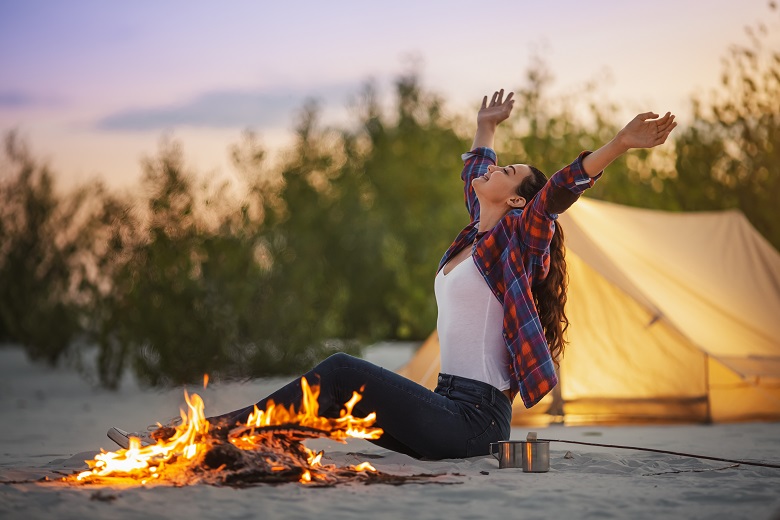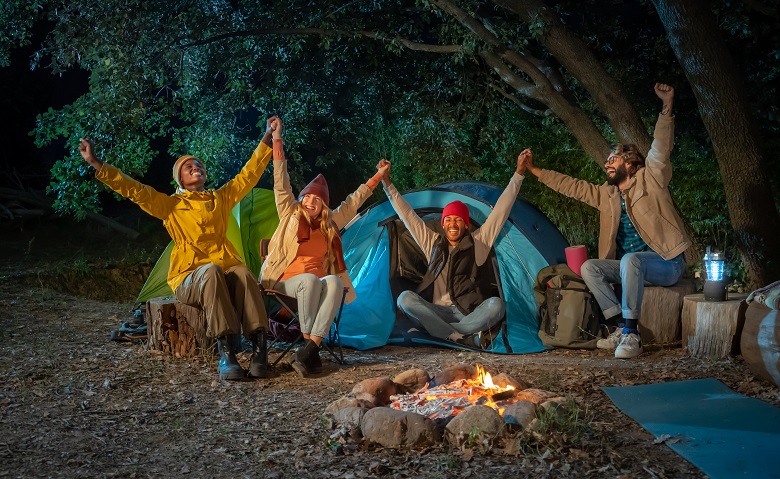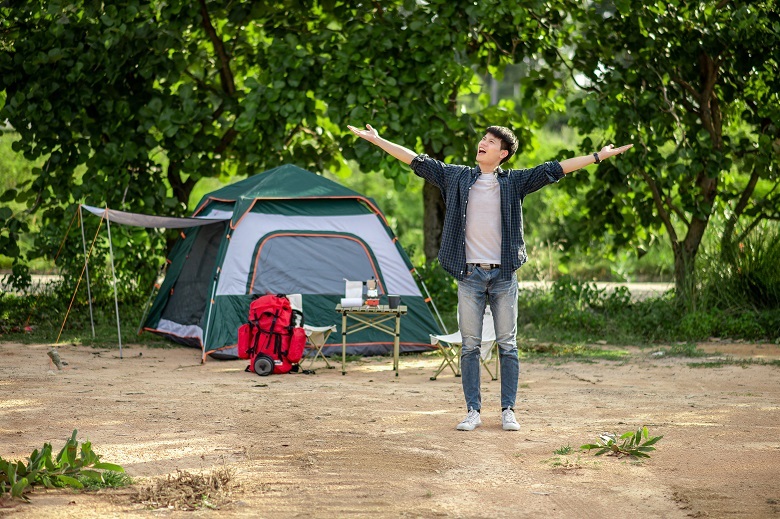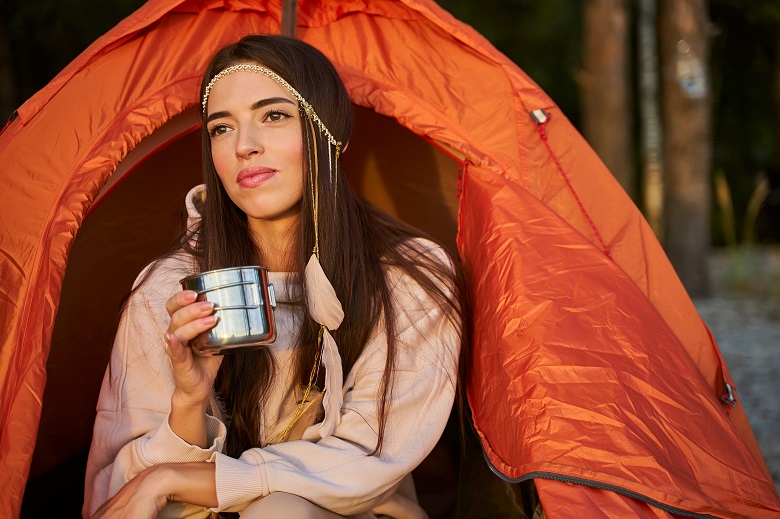Camping in the great Australian outdoors offers more than just a scenic escape from daily life. Whether you choose to venture alone into the quiet wilderness or join a lively group at a popular campsite, camping can have profound effects on your mental health. This article explores the psychological benefits of both solo and group camping, providing insights into how each can enhance mental wellness in unique ways.

Stress Reduction
Solo Camping: Solo camping allows individuals to step away from the pressures and demands of social interactions, leading to significant stress reduction. The tranquility of nature and the absence of daily stresses can help calm the mind and rejuvenate the spirit.
Group Camping: Camping with others can also reduce stress, albeit differently. Being in a group where tasks are shared and laughter is common can release endorphins, the body’s natural stress relievers, making group camping a joyous escape from the routine.
Enhancing Self-Awareness
Solo Camping: The solitude of camping alone provides a perfect setting for introspection. Australian landscapes, from the bushlands to coastal areas, offer a backdrop where one can reflect on personal goals, struggles, and achievements without distraction.

Building Social Bonds
Group Camping: Group camping naturally fosters social connections. Participating in activities like setting up camp or gathering around a fire at a Queensland beach or a forest in Victoria encourages bonding and can strengthen relationships through shared experiences.
Impact on Depression and Anxiety
Solo vs. Group Camping: Both solo and group camping can positively affect mental health issues like depression and anxiety. Solo camping offers a peaceful environment to work through personal issues, while group camping provides support and distractions from daily worries, which can be particularly comforting.
Skill Development
Solo Camping: Skills developed during solo camping include independence and self-reliance. Navigating through the Blue Mountains or cooking over a fire in the Outback can enhance one’s confidence and abilities.
Group Camping: Group settings emphasize collaborative skills, communication, and the ability to work effectively as part of a team, which are beneficial in both personal and professional life.

Sense of Freedom and Autonomy
Solo Camping: There is a unique sense of freedom when camping alone, as it allows one to make all decisions independently, from choosing the campsite to planning the daily activities.
Feeling of Safety and Security
Group Camping: For many, especially those new to camping, being in a group provides a sense of safety and security that solo camping might not offer. This is particularly true in more remote areas of Australia, where wildlife encounters are more likely.
Connection to Nature
Solo vs. Group Camping: Both types of camping offer a connection to nature, but solo campers may experience this more intensely. Without the distractions of conversation, the sounds and sights of nature become more pronounced.

Escape from Social Pressure
Solo Camping: Solo camping provides a break from social obligations and pressures, offering a chance to unwind completely on one’s own terms, without needing to conform to group dynamics.
Whether you choose the solitary paths or the shared trails, camping in Australia offers vast opportunities for improving mental health and well-being. Both solo and group camping have their unique benefits, making them suitable for different needs and personalities. By understanding these benefits, Australians can better plan their outdoor adventures to support their mental health needs, whether they’re seeking solitude under the stars or camaraderie by the campfire.

Jared Jeffery, the digital marketing specialist at Murphys Creek Escape, is a seasoned professional in the field of SEO-driven marketing. With over 10+ years of experience, he possesses a well-rounded background in the digital realm. Throughout his career, Jared has worked in agencies specializing in Travel, Finance, and Event Planning, lending his expertise to major projects involving prominent hotel chains. In addition, he has contributed his writing skills to the creation of numerous articles spanning across a wide range of industries. With his wealth of knowledge and extensive experience, Jared brings a valuable skill set to the table.
